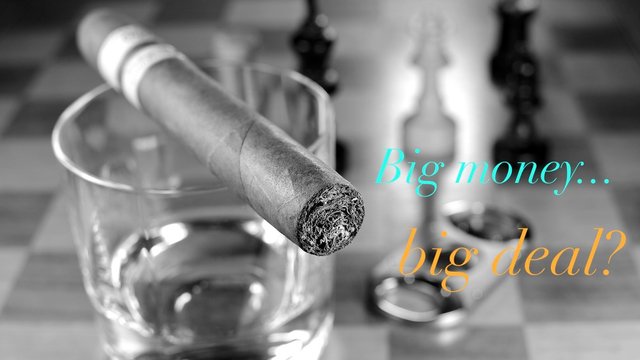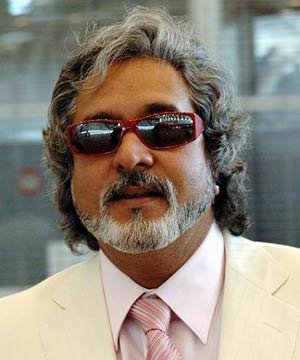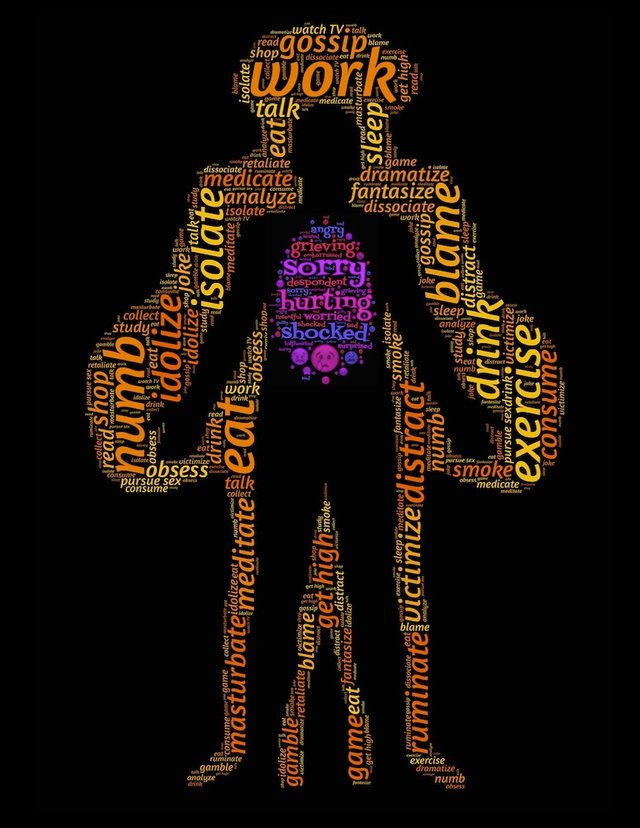Whisky deals, and the art of questioning things

The Devil finds work for idle hands.I often think about this proverb. It suggests that if you're not busily occupied, you're likely to get tempted away from the straight and narrow path.
Or you could look at it another way. The most brilliant inventions often come after a good night's sleep, or when someone is dreaming, thinking abstractly. The same could be said for ideas of dissent, subversion and questioning authority.
Most of us are kept busy in our jobs, households and leisure time. After a frenetically busy day at work, we are encouraged to spend hours focusing on the television screen.
We are not encouraged to think for ourselves too much.

There are lots of distractions to keep our minds occupied when we're not busy working. Image by dawnfu.
I've always been someone whose mind wanders and starts to question things, even when I was working really hard in an attempt to satisfy my ambitions and climb up the career ladder. In some ways it's not surprising that I became a journalist.
During more than 25 years as a mainstream media journalist, mainly on magazines, I learned the importance of questioning. Querying things that were apparently small and unimportant could reveal deeper mistakes, or even hidden truths.
But certain areas were not open to question – for example, the ethics of promoting sales of cigarettes in one trade magazine I worked for. You either accepted it or gave up your job.
There were other issues that raised questions in my mind, which I knew were irrelevant to the subject matter of my magazine, and which I would therefore have to continue researching at home.
Like… howcome the iconic whisky firm Whyte & Mackay was being bought and sold by wealthy tycoons as if they were exchanging goods on eBay? That's how it seemed from reports in the business pages in the early 2000s.
Gambling chips
Whyte & Mackay was never my favourite tipple, but a bottle of the blended whisky was a permanent fixture in my Dad's drinks cabinet – and those of most of his friends, in the 1970s and 80s.
The firm had changed hands in a management buyout in 2001 – the largest MBO in Scotland at the time, funded with a £190 million loan from German bank WestLB.
It then became known as Kyndal, and in 2002, when I started my job on a business magazine, Kyndal was all over the Scottish business pages, accompanied by artsy photographs.
That was big business news, nothing more. But in the next few years, the firm changed hands again and again. This caught my attention. Who were these men who were buying and selling long-established firms, assisted by enormous bank loans, as if they were simply gambling chips?

The Whyte & Mackay building was a prominent feature of the Glasgow skyline for 30 years. Photo by Chris Downer, geograph.org.uk
The names Vivian Imerman and Robert Tchenguiz kept cropping up in the business pages. Imerman and Tchenguiz partnered with Robert's brother Vincent to buy a minority interest in Kyndal. Imerman was appointed executive chairman, invested in the firm, and cut jobs and costs. He increased his stake in the firm by buying out shareholding employees.
The German bank WestLB again stumped up the cash, this time for Imerman and the Tchenguiz brothers to increase their share.
Two years later the firm, now known as Whyte & Mackay once again, was sold to United Spirits for a cash payment of £595m.
Few people who drank Whyte & Mackay whisky had any idea of the high-stake financial game-players that the brand was attracting.
Supermarket sweep
Robert Tchenguiz also went shopping for supermarkets. At the time this strongly drew my attention. I couldn't understand how one man could be just buying up all these long-established companies. On the business magazine I worked for I learned how small businesses – some of them long-established family firms – were being choked by red tape, while big businesses and private equity firms were swallowing them up and slashing costs.
Tchenguiz acquired the ailing supermarket chain Somerfield, and the pub chain Mitchell & Butler. He later made a bold attempt to buy the Sainsbury's chain, borrowing heavily from the Icelandic bank Kaupthing. This was to be his downfall.
When the Icelandic bank collapsed in 2008, Tchenguiz was forced to sell assets he held in supermarket chain Sainsbury's and pub chain Mitchell & Butler's at enormous losses, wiping out an estimated £800 million of his fortune in one single day.
But don't expect to see him begging in the streets any time soon. He still maintains an extensive London property portfolio.

Vijay Mallya, who purchased Whyte & Mackay in 2005 for $595m, is now subject to an extradition order from the Indian government. Photo by Franciscojuanlago.
• Vijay Mallya (left), who was chairman of Indian firm United Spirits when they purchased the Whyte & Mackay brand from Imerman and the Tchenguiz brothers, is currently subject to an extradition order from the Indian government to the UK, to face financial crime charges.
• The Icelandic government took control of Kaupthing Bank after its collapse, and in 2013, four former bosses of the bank were sentenced to between three and five and a half years in jail. Following an appeal on behalf of the bankers, two of the sentences were lengthened.
• WestLB bank – full name Westdeutsche Landesbank – was broken up in 2012 following a series of scandals and trading losses. According to Reuters, the cost to taxpayers and regional savings banks* will be in the region of €18 billion ($23bn) by 2028, when its bad assets are finally wound down.
*Germany's landesbanks provide wholesale banking services to its regional savings banks.
Job losses
These were not the only financial shenanigans to catch my interest as I skimmed through the business pages in the years leading up to the financial crash. The buyout of long-established British firm Boots by the US private equity firm KKR, astonished me.
It seemed comparable to greedy landlords buying and selling properties to make a profit, while cutting back on maintenance, all financed by banks hungry for the interest payments.Private equity buyouts and mergers often seemed to lead to major job losses. What was going on seemed comparable to greedy landlords buying and selling properties to make a profit, while cutting back on maintenance, all financed by banks hungry for the interest payments.
Actually building good businesses producing quality products seemed to be pretty low on the priority list. No wonder capitalism went into a tailspin.
The UK government seemed to be not just encouraging, but cheering on these activities. The Labour government. The irony!
Maybe the strange thing is, that although I was subsequently made redundant myself, and failed to receive any help, financial or otherwise, from government employment agencies, I initially sincerely believed that bailing out the banks was necessary and that the government was doing all it could to help prevent further crises.
But too many questions had been placed in my mind to continue in this vein, and over the next few years my attitudes completely changed. It might be true to say that the seeds of anarchy had been sown in my mind, though it took them a bit of time to germinate!
I realised that for the most part, governments were acting in the interests of so-called big business (i.e. private equity vehicles) and big money, rather than the interests of the voters.
Look away, people!
There are huge efforts to draw our attention away from these issues that might appear dull and boring on the surface, but which ultimately affect our day-to-day lives. In the above case it was the German taxpayers who had to stump up the bill for WestLB's risky investments, but it's a story that is repeated time and time again, in the shadowy regions where most of us can't be bothered to look.
How do these people get away with it? Because most of us are too lazy to care.

Image by johnhain
Is it a deliberate thing that when you search online for the history of Whyte & Mackay (as I did to try and get my facts straight on details that I remembered from almost 17 years ago) there is very little detail on the buyout by Imerman and the Tchenguiz brothers? The current Wikipedia page on Whyte & Mackay ignores the entire episode, and some of the articles it references have been purged.
They can still be found, but it takes quite a bit of delving.
Anyone would think that the leading players in this escapade had tried to get the whole thing covered up and gone into hiding!
Gone into hiding? Far from it. The Imerman and Tchenguiz names have been all over the press and media recently, because Vivian Imerman's former wife, Lisa Tchenguiz – sister of Robert and Vincent T – featured in the BBC 2 documentary Millionaires' Ex-wives Club.
This is the dross they ask us to focus on – to obsess over whether it's right for a pampered divorcée to receive "just £15 million" when her former husband is worth more than £200 million, and to follow their ludicrous lifestyles, without it even occurring to us that we might have partially financed it.
It's just one example of why I have no regrets about no longer working in the mainstream media.
I think it's more important to try and spend some time questioning things and looking behind the bland media headlines – even if the message only gets to one person – than to waste time earning a living churning out stories designed to sell advertising for cigarette brands.
Just as you should read your bank statement to check that you haven't been charged for something you didn't want or purchase, you should check on the activities of the people who are spending your money, and keep tabs on what your hard-earned cash is being spent on.
We need to take more responsibility. How do these people get away with it? It's directly linked to our laziness. These issues are often very complex, and as a result, very boring to most people. We need to shed light on what's going on behind the scenes.
I'd like to write more about how the government was actively encouraging this high-stakes financial risk-taking in the years leading up to the "credit crunch", but I've already said enough for one post.
For now, I'd like to remind people that we are all much more powerful than we realise.
Recognise your power
The belief that we are powerless is one of the most destructive beliefs that there is. It's what led me to accept the fact that my income was partially paid for by cigarette firms. My attitude was: what difference would it make if I insisted on sticking to my principles and refused to do this job? Someone else would do it instead.
And that likely would have been the case. But maybe I would then have gone on to do something more worthwhile.

Photo: author's own.
By negating your personal power, you are conceding defeat without even participating in the struggle.
Free yourself from the cult. Remember that it's not the Devil who finds work for idle hands to do: it's your mind! Give yourself some free time and space to think, allow your mind to breathe, and enjoy the enlightening (and maybe a little subversive) thoughts.
Posted from my blog with SteemPress : http://ramblingandscrambling.co.uk/freedom/whisky-deals-and-the-art-of-questioning-things/

.gif)


Such an interesting and thought-provoking read,
I think these days so many just want to read what matches there own beliefs and do not like researching things out of their own comfort zone
Thanks @tattoodjay. Really glad you enjoyed it. And so true about people not wanting to venture out of their comfort zone.
indeed, but I have ot admit there are some areas I dont like gettign out of my comfort zone, like candid street shots of people, is still way out of my comfort zone
Oh yes there are many areas where I prefer to stay in my comfort zone too! But sometimes it is exciting to step outside it, like the solo wild camp I did 10 days ago. I was really nervous about doing that, but it was something I really wanted to do, and the fact that I felt the fear and did it anyway was such a good feeling!
Yes that is a good feeling for sure, Wild camping solo is such a buzz, I didnt know the term but I did it a few times in my younger years
Curated for #informationwar (by @wakeupnd)
Ways you can help the @informationwar!
Congratulations! This post has been chosen as one of the daily Whistle Stops for The STEEM Engine!
You can see your post's place along the track here: The Daily Whistle Stops, Issue 420 (03/06/19)
Congratulations! This post has been upvoted from the communal account, @minnowsupport, by Slobberchops from the Minnow Support Project. It's a witness project run by aggroed, ausbitbank, teamsteem, someguy123, neoxian, followbtcnews, and netuoso. The goal is to help Steemit grow by supporting Minnows. Please find us at the Peace, Abundance, and Liberty Network (PALnet) Discord Channel. It's a completely public and open space to all members of the Steemit community who voluntarily choose to be there.
If you would like to delegate to the Minnow Support Project you can do so by clicking on the following links: 50SP, 100SP, 250SP, 500SP, 1000SP, 5000SP.
Be sure to leave at least 50SP undelegated on your account.
Lazyness - I guess one can call it that (the reason why we don't bother to investigate what should be followed up). But I think there is more to it.
Most of us have an innocent faith in the intentions and doings of our fellow beings, especially in those of authorities and recognized icons. (It is this blind trust that makes us easy targets of those well versed in the art of deceit.)
This trust in the trustworthiness of our fellow beings is deep seated - as old as the roots of social existence. And I think it is a resistance in us to upset this most basic component of social capital that inhibits us from discovering flaws that may threaten our very existence that makes us tardy to investigate.
What do you think?
Thanks for your comment @clicketyclick. That is a very good point. And it has occurred to me before.
As soon as we are born we are totally dependent on our parents, and the father usually takes the lead. If we are raised in a Judeo-Christian or Islamic tradition, we are taught to worship "The Father" – and it just goes on from there, unquestioning obedience to authority figures. It's hardwired into us from birth.
Wow this is very interesting. It's not quite direct to the point but hey now I learned something new. That's terrible if people aren't curious enough abt what's been happening there. At least now more people know about it because of your post. 😊
Posted using Partiko Android
Thanks @artgirl - really glad you learned something new from my post. These kind of financial deals benefit from being kept in the dark.
Congratulations @natubat! You have completed the following achievement on the Steem blockchain and have been rewarded with new badge(s) :
Click here to view your Board
If you no longer want to receive notifications, reply to this comment with the word
STOPTo support your work, I also upvoted your post!
Vote for @Steemitboard as a witness and get one more award and increased upvotes!